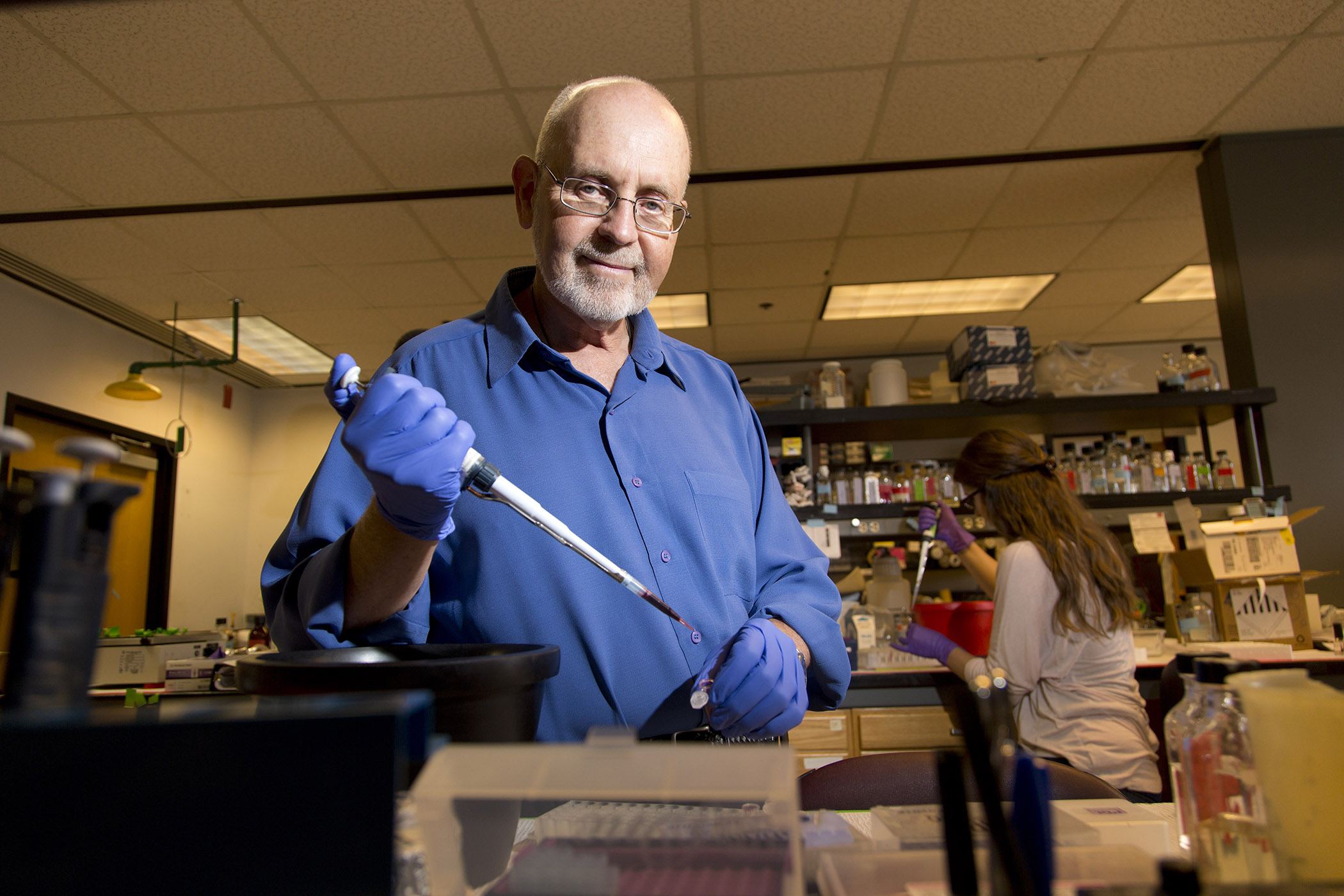Athens, Ga. – Not all fat is made the same. Scientists have observed that fat cells in an obese person produce more molecules called adipokines, which catch the attention of the body’s immune system, causing them to invade fatty tissues.
The flood of immune cells normally reserved for fighting infection can lead to disease-causing inflammation and the kinds of abnormal cell growth that causes cancer. But it’s difficult to study this phenomenon, because scientists don’t have an easy way to separate fat cells from other cell types and study them in the lab.
Now, thanks in part to a $670,000 grant from the National Institutes of Health, researchers at the University of Georgia, Emory University and Abeome Corp. are working on a new method to isolate these troublesome fat cells and analyze the genetic changes in obese fat that may contribute to diabetes, cardiovascular disease, cancer and other obesity-related diseases.
“It’s very clear that an obese individual’s fat has been reprogrammed in a way that’s quite pathological,” said Richard Meagher, Distinguished Research Professor of Genetics in UGA’s Franklin College of Arts and Sciences and principal investigator for the project. “And the trouble is that even if you start to lose weight, these cells remain reprogrammed, so we’re trying to find ways to change that.”
A single fat sample contains a variety of cell types normally found in the human body, which can interfere with tests designed to analyze the tissue.
Meagher and his colleagues are exploring a technique known as “capture by nuclear antibody,” or CANA, which uses specially designed antibodies to locate the nuclei from specific cell types and pull them away from the otherwise garbled mess of cells.
“Fat cells are big and clumsy, and if you isolate them and let them sit in a tube for an hour, a little while later it looks like butter is coating the edge of the tube because they are all breaking open and the fat is sticking to the sides of the glass,” Meagher said. “We started thinking of ways to get around all these problems so we can analyze the cell types.”
The technology targets the nucleus of cells, where important genetic instructions are stored. The surface of each nucleus is coated with proteins called antigens, and each antibody their laboratory creates will be designed to recognize a specific antigen.
He hopes to identify antibodies that can distinguish between different kinds of fat cells and isolate them. He will then analyze the DNA from cells to see what changes have led to an increase in inflammation.
“It’s much more like a science fiction movie than people imagine,” Meagher said. “These inflammatory cells actually crawl into fat and the fat transfers inflammatory signals through the blood to the rest of the body.”
His laboratory is teaming up with Abeome, a biotech company founded by Meagher and housed in UGA’s Georgia BioBusiness Center, to create hundreds of different antibodies that can potentially target unique antigens on the fat nuclei.
One day, Meagher hopes to use this technology to develop clinical diagnostics and drug therapies that target specific fat cells.
“If we start treating people, we need some way to see what has happened, how to reprogram the cells back to where we’d like them to be,” Meagher said. “We don’t have a way to measure that because we don’t know what’s actually wrong yet, so understanding the reprogramming that has occurred is a big part of our project.”
The research project is supported by the National Institute of Diabetes and Digestive and Kidney Diseases at the National Institutes of Health under award number 1R01DK100392-01A1.


